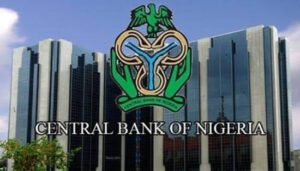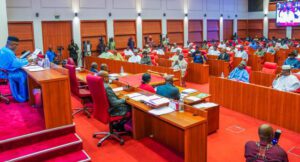


Naira plummets to N1,600/$1 amid economic challenges in Nigeria
By Sodiq Adelakun
In a continued economic downturn, the Nigerian naira has taken a significant hit, plunging below the N1,600 mark against the US dollar on Thursday.
The persistent decline has raised concerns over the effectiveness of the Central Bank of Nigeria’s strategies to stabilise the currency.
Despite President Bola Tinubu’s administration’s efforts to control the devaluation, the naira’s value has been on a steady decline, with the situation worsening since the decision to float the currency.
Aboki Forex reported the latest drop to N1,600 to $1, underscoring the challenges faced by the government in curbing the currency’s rapid depreciation.
The naira’s fall has been a trend, with a notable dip in September when it hit a record low of N1,000 to the dollar in the parallel market.
This drop brought to light the critical state of President Tinubu’s economic policies and their inability to manage the national currency effectively, especially in the face of soaring inflation rates.
The Association of Nigerian Licensed Customs Agents (ANLCA) voiced their concerns in July, indicating that the floating of the naira had adversely affected vehicle importation, impacting the nation’s ports.
On January 31, the currency experienced another fall, recorded at N1,520.123 to a dollar, as per Naira Rates. This followed a depreciation to N1,482.75 per dollar in the official foreign exchange market on January 30, marking a significant N38 drop within a span of 24 hours.
The ongoing depreciation of the naira continues to be a significant worry for Nigeria’s economy, with stakeholders looking for robust solutions to stem the tide and restore confidence in the nation’s financial stability.
The fall made it the first time after the COVID-19 period that the official exchange rate will be higher than the parallel market exchange rate, which traded at N1,470 per dollar from N1,425 on January 29.
The monetary policy of Mr Tinubu’s government played a huge role in the further downward slide of the naira after he floated the currency.
Tinubu’s economic policy scrapping fuel subsidy and collapsing multiple foreign exchange windows into the single Importer and Exporter, or I&E window, drastically depreciated the naira’s value by 98 per cent, a report by the Price Water Coopers stated.
The top global business advisory audit firm said in its report ‘Nigeria’s Economic Outlook: Seven Trends That Will Shape Nigerian Economy in 2024’ that Mr Tinubu implemented policies that had the domino effect of devaluing the naira by nearly 100 per cent but appealed to foreign investors as the move was projected to improve the economy in 2024.
Since September 26, the Nigerian naira has experienced an unprecedented decline, reaching a historical low of N1000 against the U.S. dollar. This has resulted in a 17 percent decrease in the currency’s value.
The continuous depreciation of the naira is causing concern and shedding light on the challenges associated with President Bola Tinubu’s fiscal policies.
Despite the significant consequences, such as inflation and reduced purchasing power, Tinubu’s administration has implemented what they refer to as strategic measures.
These include the removal of petrol subsidies, which faced resistance and skepticism but aimed to alleviate the government’s financial burden and promote a more market-driven economy.
Additionally, the decision to adopt a clean float foreign exchange management system was made.



